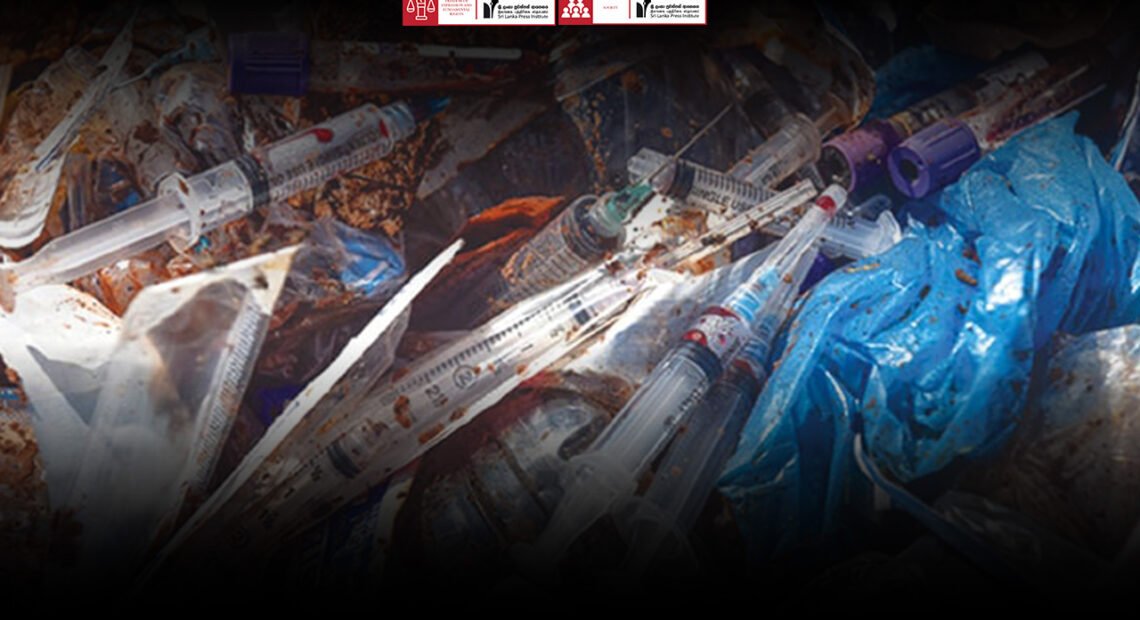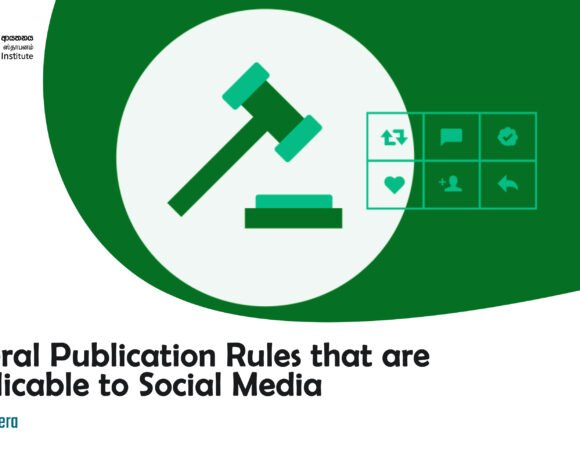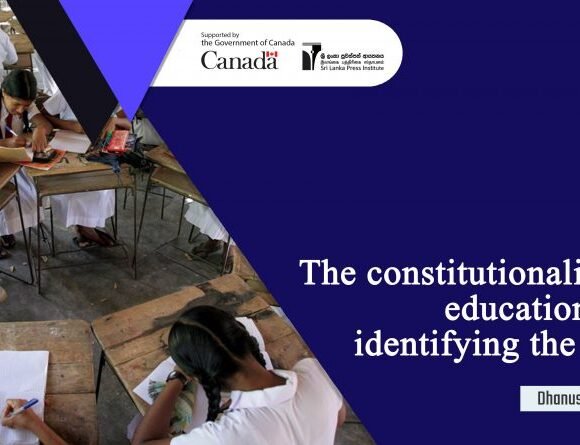Waste control tax proposed on health sector
Aruna Lakshman Fernando
We still remember the headline-catching public protests when the Colombo Municipality tried setting up urban garbage recycling centres at a distance from the crowded metro region. The city authorities were seeking a solution to their mounting, highly polluting, garbage dumps, but the local communities at the intended recycling sites would have none of it. Their grouch: why should they, safely far from the toxic city, bear the risks of other people’s dirt?
But Sri Lanka’s mega urban garbage problem parallels another, equally serious, waste disposal challenge that is less talked about. While urban denizens and suburbia are both sensitive to the hazards of city garbage accumulation, few get to think about something known as ‘clinical waste’. ‘Clinical waste’ is the garbage that comes from the healthcare and medical treatments industry – everything from syringe needles to glass or plastic chemical vials, human samples, discarded bandages and much more, adding up to a deadly mix of the organic and inorganic.
Even the 2019 Auditor General’s Report focuses on the problem. The Report notes that clinical waste spewed out by the country’s rapidly expanded healthcare sector, both public and private, is a major social and environmental challenge. But it is a challenge that Sri Lankans seem to be competently meeting.
When asked about this, J.M. Indraratne, Deputy Director (Waste Management), Central Environmental Authority, said that although there had been issues with clinical waste management in Sri Lanka until about 2018, almost all of the problems had now been successfully resolved. His claim was confirmed by an assessment study conducted jointly by the United Nations Development Program (UNDP) and the United Nations Children’s Fund (UNICEF).
The UN study report was recently handed over to Asela Gunawardena, Director of Health Services, by Robert Jukam, Resident Representative of the United Nations Development Program (UNDP). It states that Sri Lanka has made progress in many areas, including clinical waste management and standardization. The report also proposes to further formalize clinical waste management by imposing a new tax on public and private sector hospitals, Ayurvedic treatment centers, medical laboratories, and other healthcare centers.
Sri Lanka’s clinical waste management is not entirely a state-funded activity. It also has the direct contribution of two private sector enterprises.
CEA Deputy Director Indraratne explained: “Around 40 metric tons of clinical waste is generated daily in hospitals, health centers, laboratories, etc. in Sri Lanka. Out of that, one private company handles 15 tons, and the other handles 2 tons, using internationally accepted disposal methods. The former company has an incinerator in Kerawalapitiya, and the latter has theirs in Hambantota.”
The CEA official also disclosed that the amount of clinical waste had dramatically increased by about 12 metric tons per day during the period when the Covid-19 virus was spreading rapidly in the country. However, the waste output was now returning to normal with the decline in the spread of the pandemic.
Indraratne explained that the remaining 23 tons of waste daily was disposed within the health sector itself. Many public and private hospitals have their own incinerators. “Hospitals in Chilaw, Anuradhapura, Negombo, and Polonnaruwa have incinerators that disposes of clinical waste. Similarly, large-scale hospital complexes like the Army Hospital, the Nawaloka and Asiri Hospital chains also have incinerators. So they incinerate their waste themselves.”
Incineration of clinical waste must be done with extreme caution because exposure to these contaminants can have dire consequences. Most notably, however, the Colombo National Hospital, the largest hospital in Sri Lanka, does not have a waste incinerator. The 1.5 tons of clinical waste generated daily at the National Hospital is disposed by the Sisili Hanaro Company, the third private venture handling clinical waste.
Although clinical waste is disposed of through private sector entities, the process is fully supervised and regulated by the environmental authorities.
Similar to all other waste disposals, waste type segregation is the most important factor in the disposal of clinical waste as well. There is an international classification system for this and it is applied in Sri Lanka. For example, the sharp scalpels used for surgery belong to the first category that also includes other disposable instruments like syringes. Infectious clinical waste, including bandages, cotton, and plaster falls into the second. The third category includes excreted body parts, laboratory blood, and fluid, and disposable gloves, such as masks, are separately handled as a fourth category.
Sineth Perera of Sisili Hanaro, which disposes of 15 tons of clinical waste daily, said that his company collected clinical waste from the hospitals assigned to it by the Ministry of Health. He says: “We collect this waste very carefully according to the international standard procedures. We have specially trained personnel and vehicles for this purpose. Transportation of this waste requires a special license. Our crews use internationally used protective gear when carrying out these tasks. The clinical waste we collect is incinerated under standard conditions.”
Preventing the contamination of clinical waste with other waste is a vital step in clinical waste management. This process is handled entirely by the sanitary workers attached to the hospitals and the minor staff of the health department. Here, it was observed that they sometimes worked in unsafe conditions. About 80% of the hospital sanitary workers are women. Therefore, the improper handling of clinical waste is more likely to pose a serious threat to women’s health. Hence, they must be properly trained and provided with the necessary safety tools.
ශ්රීලංකාවේ සායනික අපද්රව්ය කළමනාකරණය ගැන එක්සත් ජාතීනගේ අවධානය
ஐக்கிய நாடுகளின் அவதானத்தைப் பெற்றுள்ள இலங்கையின் மருத்துவக் கழிவு முகாமைத்துவம்









